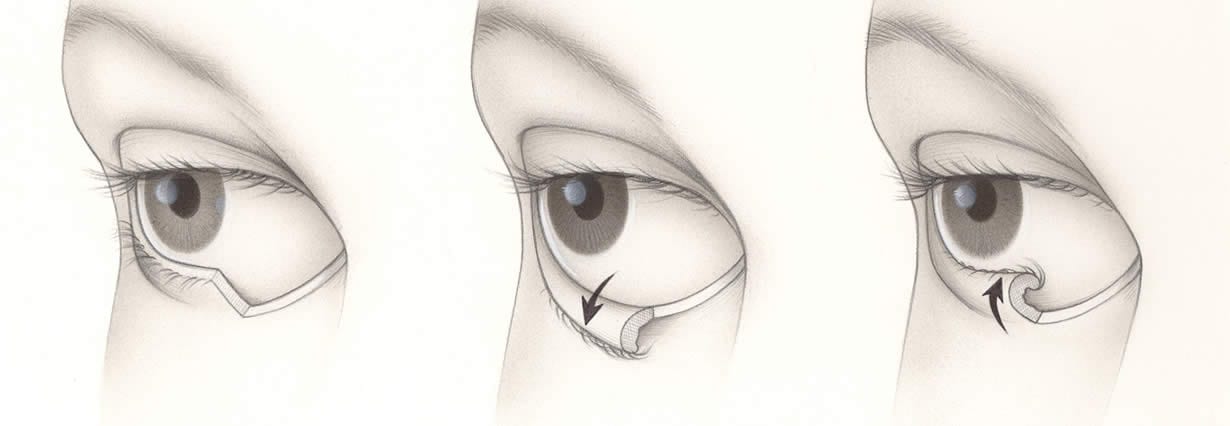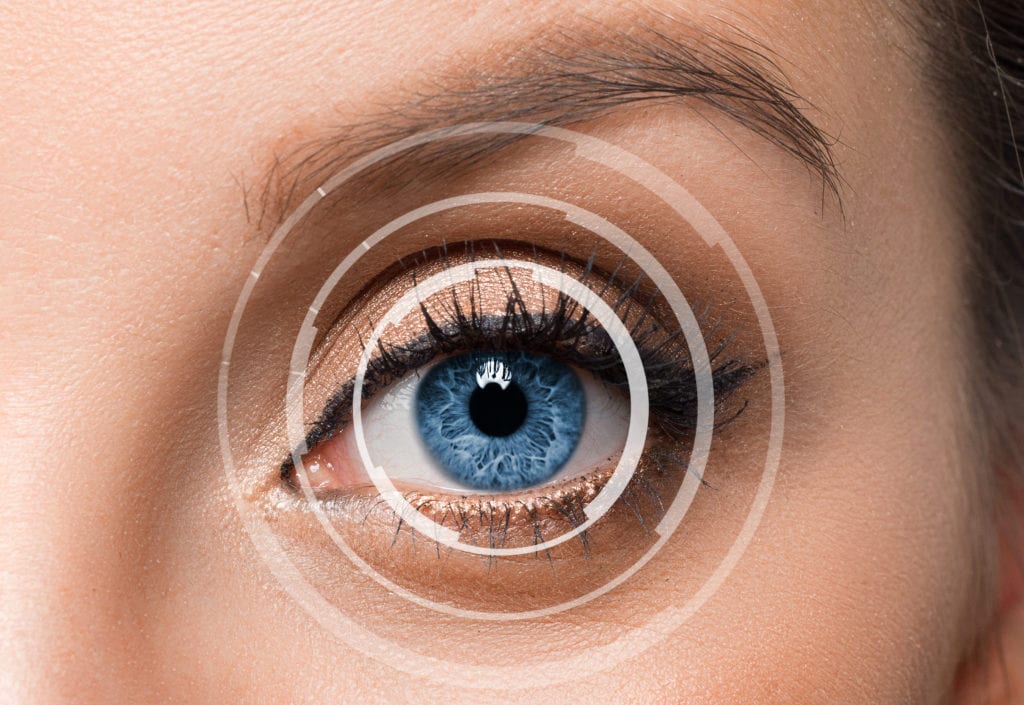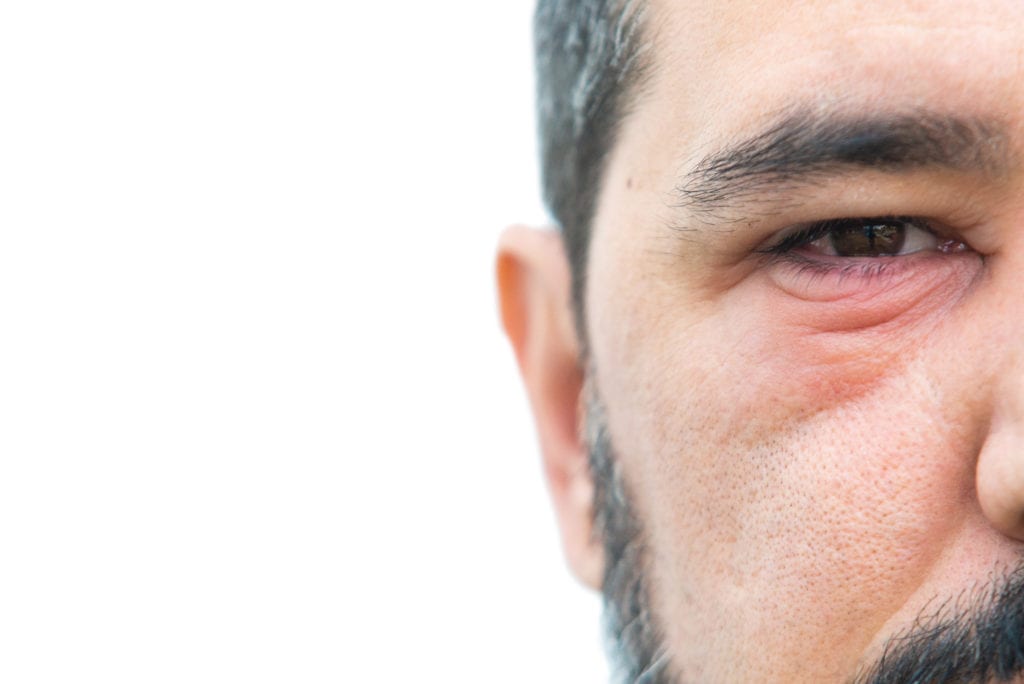Ectropion Surgery in Everett, WA
What is Ectropion?
 Ectropion is a medical condition in which the lower eyelid is turned outward so that the inner surface of the lid is exposed. The lower lid often has an inflamed and sagging appearance. Ectropion may result in dryness, irritation, and tearing. The most common cause of ectropion is aging, which weakens the connective tissue of the eyelid and allows it to turn outwards. Lubricating drops may provide temporary relief of dry eye symptoms. Surgery is usually needed in order to tighten the eyelid muscles.
Ectropion is a medical condition in which the lower eyelid is turned outward so that the inner surface of the lid is exposed. The lower lid often has an inflamed and sagging appearance. Ectropion may result in dryness, irritation, and tearing. The most common cause of ectropion is aging, which weakens the connective tissue of the eyelid and allows it to turn outwards. Lubricating drops may provide temporary relief of dry eye symptoms. Surgery is usually needed in order to tighten the eyelid muscles.
What causes ectropion?
Entropion is usually a result of aging, as the muscles around the eyes become weaker. For this inward-turned eyelid, these are the potential causes:
- Muscle weakness
- Injury
- Congenital defect
- Prior eyelid surgery
- Inflammation
- Skin disease
Who is at greater risk for developing ectropion?
Certain factors increase your risk of having your lower eyelid turn inward. They include:
- Age — The older you are, the greater your chances of developing entropion. It’s simply a matter of support tissues slackening.
- Previous burns or trauma — The scar tissue from a burn or facial injury can put you at a higher risk.
- Trachoma infection — This bacterial infection of the eye creates granulation on the inner surface of the eyelids, which can create scar tissue. This increases your risk of the lid flipping inward.
What are the symptoms of ectropion?
When your eyelid turns inward with entropion, the symptoms you’ll experience are due mainly to the friction of your eyelashes and the outer eyelid rubbing on the surface of your eye. These are the symptoms:
- The feeling that something is in your eye
- Eye redness
- Eye irritation or pain
- Sensitivity to light and wind
- Excessive tearing
- Mucous discharge and eyelid crusting
What complications can develop with ectropion?
Because ectropion exposes both the inside of the lower eyelid and the cornea, serious complications can result from this condition if left untreated. These include corneal abrasions, corneal ulcers, and recurrent eye infections. All of these can damage the eye permanently over time.
How is ectropion surgery performed?
Once your eyelid has turned inward, the only real treatment option is surgery. The approach your Physicians Eye Clinic ophthalmologist will use to repair your entropion can vary depending upon the cause:
- Entropion caused by aging. If your entropion is age-related, your surgeon will remove a small part of the lower eyelid. This helps tighten the affected tendons and muscles.
- Entropion caused by scar tissue. If the patient has scar tissue on the inside of the eyelid or if they have had previous trauma or eyelid surgery, Dr. Jones or Dr. Lueth may perform a mucous membrane graft using tissue from the roof of the mouth or from the nasal passages.
What is recovery like after entropion repair surgery?

We’ll give you an antibiotic and steroid ointment that you use on your eye several times a day for the first week. Your stitches will come out after about one week. You’ll have some bruising and swelling that can last for about two weeks. If you make efficient use of the cold compress we provide, you can mitigate some of this. The vast majority of these procedure are successful, and recovery is not difficult.
What are the risks involved with entropion repair surgery?
These are simple surgeries, but they are still surgery, so they entail the risks inherent with any surgery: excessive bleeding, poor incision healing, reaction to anesthesia, infection, and the like. Thanks to the experience and expertise of Dr. Jones and Dr. Lueth, these complications are unlikely.
There is a possibility that your initial surgery won’t fully correct your entropion. This would require a second surgery. This is also quite rare.
What could happen if I don’t treat my entropion?
If you notice any of the signs that your eyelid has turned inward, it’s time to call us at Physicians Eye Clinic. Left untreated, entropion can cause permanent damage to your cornea.
Patient Testimonial
Read what our patients are saying!
“great surgery staff they are so friendly and caring and make you feel so relaxed.”
“All of the employees were there to make the experience the best it could be, and making you feel as though you were the most important guest they had at that time. Your ease and comfort was their utmost concern.”
Click here to read more reviews.
When Can I Resume Normal Activities?
After the initial recovery period, you should be able to perform your normal activities as before. However, there are things you should avoid until cleared by your doctor. These include:
Avoiding heavy lifting for at least two weeks.
Avoid rubbing your eye.
Avoid strenuous exercise for at least four weeks or until your doctor says it is okay.
Avoid using makeup for two to three weeks.
Avoid swimming for at least one month.
What Are the Risks of Ectropion Surgery?
When performed by a skilled surgeon, the risks of ectropion surgery are rare. However, as with any type of surgery, there are potential risks you should be aware of:
Possible scarring: Immediately after surgery, there will be redness and swelling. This should resolve on its own relatively quickly.
Potential infection: There is a slight risk of infection.
Asymmetry: In rare cases, one part of the eyelid might tighten more than the other. This may lead to an unsatisfactory aesthetic result.
Thickened skin graft: This is a very rare risk that involves skin graft thickening.
What Is the Difference Between an Ectropion and Entropion?
An ectropion happens when the eyelid turns outward, subsequently exposing the inner surface of the eyelid and eye. It also increases the risk of injury to your cornea. The condition is more common in older adults and is usually related to weakening of the surrounding muscles and tissues.
Entropion is the opposite of ecotropion. When someone has entropion, the eyelid turns inward instead of outward. It may cause the eyelid to touch the eyelashes and the eyeball itself. This may only occur with blinking, or it may be ongoing.


